These offensive operas require audience warnings
OperaWe have received an official-looking list from a Westminster address.
Dear
In view of the commendable warning notice posted by WNO on the unseemly Candide, we recommend the following advisories to be issued with operas performed at ACE-funded companies.
Opera Warning
Marriage of Figaro Infidelity
Fidelio False transgender representation
William Tell Food waste
L’elisir d’Amore Drug taking
Nabucco Zionism
Ring of the Nibelungen Incest, disability abuse, female immolation
Otello Racial stereotyping
Falstaff Fattism
Tosca Rape, torture, mattress abuse
Jenufa Child murder
The Makropoulos Case Ageism
Lulu Anti-feminism
Porgy and Bess Cultural appropriation
Peter Grimes EU fishing law, child abuse
Billy Budd Naval language
Death of Klinghoffer Disability issues, anti-terrorism
Thank you for your cooperation.
Dr Fayre Meaner-Person
Westminster

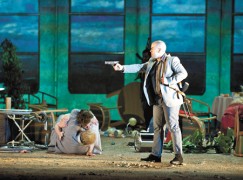
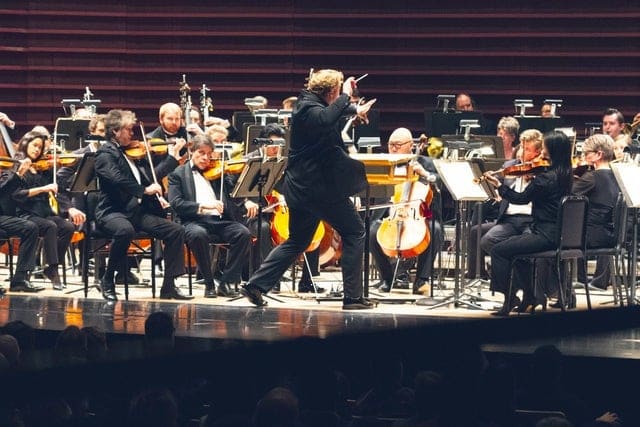
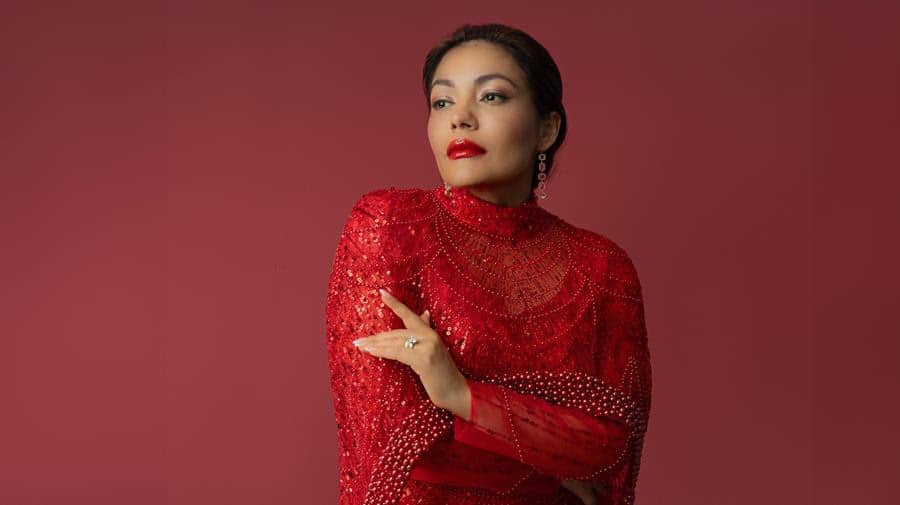
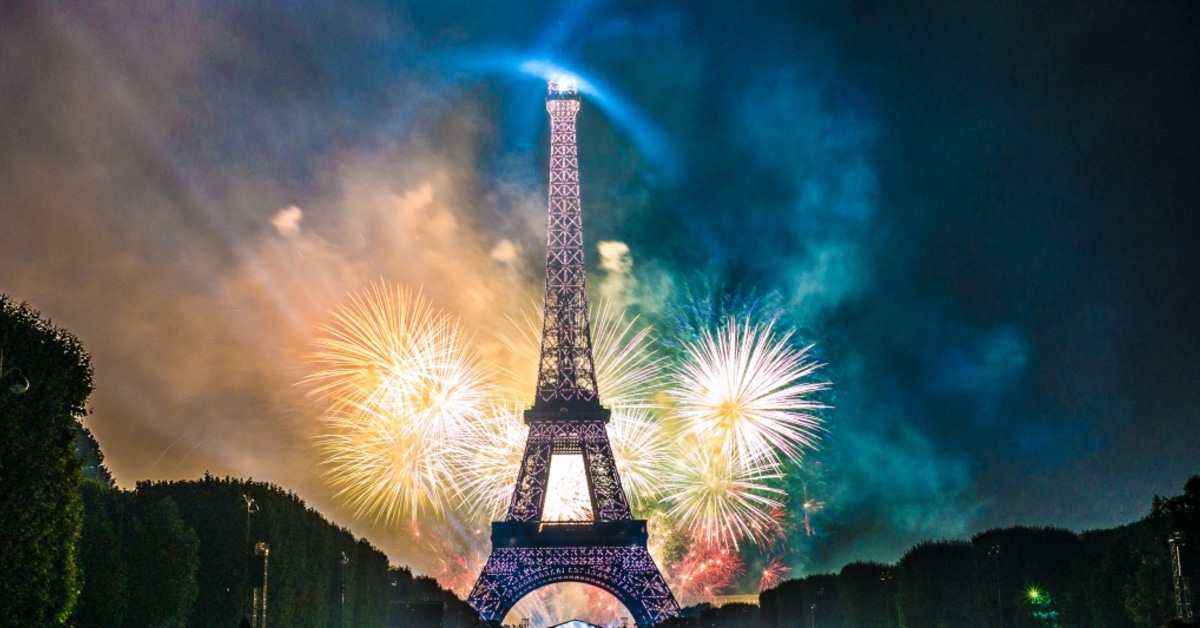
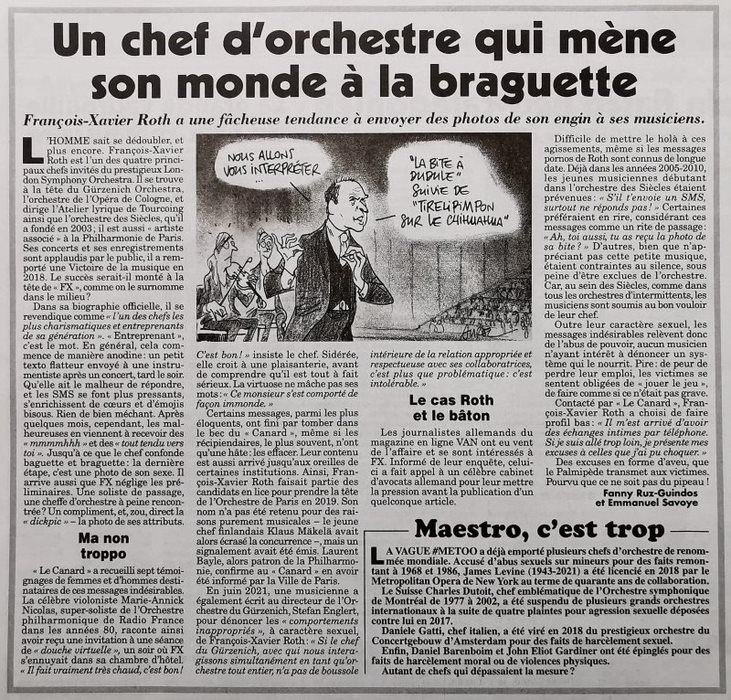
Unfortunately, behind this amusing list is the pending destruction of much of our operatic heritage by those organisations/funding bodies who will demand or effect the withdrawal of funds unless their demands for pre-performance warnings, text amendments and/or wholesale dramatic re-structuring are met. I assume that the BBC, for example, will never again broadcast a “traditional” version of Otello, Madama Butterfly or Aïda. Will YouTube find itself similarly restricted?
There are plenty of literal Nazis on Youtube. I think Otello’s fine.
Pre-performance warnings are not like changes to the text. Not at all.
They are worse – why on earth would anyone go to an opera without having any idea what it’s about.
…Because opera is not an art form only for the elite, high-informed superfans?
Heck, I went to Médée yesterday – of course I knew the general arc of the story (including the murders, of course), but I learned the detail of the plot…20 minutes before the start, when I read the programme. And I’m the kind of opera buff who, well, cares enough to read and comment on classical music blogs. I don’t think it’s excessive to imagine that a casual operagoer would not know the plot in detail.
I really can’t see how one can go to see an opera probably sung in a foreign language without knowing the story in advance. Even with surtitles, if present. I would have problems understanding the details of le nozze di Figaro, for instance, if I hadn’t read the libretto, even if I am italian. Not to speak about more complex operas in a language I don’t know (Wagmer comes to mind). Even worse if I took my kids with me. Wouldn’t you tell them the story in advance so that they don’t have to focus only on reading the surtitles to try to understand what’s going on, rather than, instead, enjoying the music, the singing and the acting?
You very much overestimate the preparation people do when going to the theatre. For many, who are not regular opera goers, an outing at the opera is no different from going to a movie – they don’t listen to recordings before, they don’t look up the singers, they don’t look up the plot and libretto. How often do you go to the symphony orchestra and hear ‘oh what are they playing tonight’ in the lobby? It happens almost every time. Same with the opera.
There are running jokes about how Il Trovatore, for instance, is confusing. Well it’s not confusing to people who’ve seen it ten times and read the libretto. Those jokes come from somewhere. I’ve been to operas where you can exactly time laughter from people reading the surtitles and discovering jokes for the first time, or hear the ‘oooh’ in the audience when they recognize La Donna e Mobile and realise where it comes from, followed by chuckle when they see what the text is about.
The average opera goer is not an expert. They still belong at the opera, and they deserve to have a good night out. That includes giving them the information they may need to decide what to see.
I understand what you say and you are probably right. Still, I don’t understand the reason for a warning. What is it for? For the first-time opera goer? Do you think a warning about incest would (or even worse, should) prevent someone from going to see the Walkyrie?
If they’re going with children, for instance, they might appreciate a warning that they should rather go see La Bohème rather than Tosca, for instance.
You are too sensible, logical……and intelligent. You sum up all of my thoughts. For the life of me why would anyone give your post anything but “thumbs up.”
Sounds like a skill issue
…but I would prepare in order to get the most of the experience.
During my years as a professor at Northwestern they performed the Magic Flute in its original version with surtitles. And I was wondering from the ouverture on how they would handle the less than politically correct things Monostatos had to say.
The solution was easy, although I did not anticipate it: they simply left out the translation. Monostatos sang “Weiß ist schön, ich muß sie küssen” (white is beautiful, I have to kiss her) and other stuff in German – but there was no English translation whatsoever in the surtitles.
YouTube stars are always being threatened with demonitization over well-known legal terms and epithets relevant to the topic. True Crime is a popular topic there and one hears clipped-off syllables of certain words referring to crimes and even the awkward euphemism “un-alive” used in place of the words “murder” and “suicide.” Unless the text is on the screen you could miss what the presenter is talking about. This is a very disturbing trend. If George Carlin were still alive he’d have much to say about this.
But George Carlin is unalive, unfortunately!
Sheila: George Carlin is dead, but Bill Maher is very much alive!
https://youtu.be/uDkNmbJLB3o
And yet again, the ‘anti-woke’ panic is reduced to making up imaginary opponents to validate its frenzy.
Meanwhile, there’s a very *real* risk that operas like the Marriage of Figaro could be banned in US states like Tennessee or Florida for showing women dressing as men, but oddly enough that does not make it into the radar of panics over censorship and content policing. I wonder why…
Hard to tell whose side you are on
I admit, this isn’t very original, but only, because precisely this sort of absurdity has been shown in real life again and again. Why then make up a person to make it look like a straw man?
But would you vote to explain and provide evidence why there is a real danger of Nozze di Figaro being banned in Florida? I suspect this is based on pure paranoia, because I have kept an eye on the development over there and nothing warrants such hysterical fear mongering.
Well here, for instance, we have community theatre managers explaining that they are forced to reduce some performance to ‘adult-only’ because of the new law, and how they have to explicitly ban children regardless of parental discretion: https://www.mynews13.com/fl/orlando/news/2023/05/23/drag-show-theatre-effect
And here we have other theatre producers discussing how the law’s deliberate murkiness causes them to alter plans and axe some shows: https://www.nytimes.com/2023/03/05/us/tennessee-law-drag-shows.html
So sure, maybe Cherubino’s fine…until he isn’t. After all, he is a teenage boy, played by a woman, who has a lot of sexual energy. Now, what about Salome? Is that sufficiently “adult-themed” for you? And will one of the few opera houses in Florida run the risk of inviting that controversy? Now *that* is censorship.
Yes sure, but what’s the solution? Warning the viewers about the potentially ‘disturbing’ contents, or rather try to educate them about the historical context and different ethics at the time the opera was written? I am asking, I obviously don’t have the solution.
I certainly know that censorship at any level is dangerous if not ridiculous, especially in the arts. See the recent case of the teacher fired because she showed the students a picture of Michelangelo’s David (or something like this,I can’t remember the exact details).
Operas reflect the time of their composition, yes – but they are being performed today. They have to account for both these contexts, and they do in different ways (some, like Chéreau’s Ring, take the past as metaphorical and update it to contemporary issues – others stick rigorously to the past). Operas are not merely museum pieces stuck in time – nor are they completely contemporary. And sometimes, there’s a third context – that in which the action is supposed to take place.
But putting a warning on it is not censorship – it’s just acknowledging that there is a contemporary audience which has its own principles and predispositions. In a way, it might even invite to consider the context of creation (for instance, a “warning: Madame Butterfly contains racist language and tropes” can be an invitation to consider why that is the case, and why it was written the way it is).
Also, sometimes operas were meant to shock then! To pretend that they shouldn’t be shocking now is at least ahistorical, if not disingenuous. I watched Médée this week in Berlin; I *should* be shocked by the murders, that’s the point of the opera. But audiences at the time would have of course known the story of Medea, and they would still have been shocked by it. Content notices don’t remove that, they create an opportunity to encounter it.
Warnings are for overgrown toddlers. Stop coddling and infantilizing ADULT American minds already!
Thanks, Emil, for the examples. I agree that one can go way overboard, but protecting children from sexual content isn’t the same as banning or censoring a work altogether.
Manhattan School of Music cancelled “Land des Lächelns”, because the librettist was Jewish and not Chinese and fired its director of opera Dona D. Vaughn.
And Glyndebourne made a sweeping statement, saying that operas about foreign cultures are, and always were, morally unacceptable.
I don’t think that child protection is the greatest threat to the freedom of the arts at this point in history.
The head of MSM, James Gandre, has turned out to be the most “woke-ist” of all, at the expense of the school’s reputation, as several top teachers resigned rather than accommodate his atrocities. And he was such a nice guy, it seemed. Apparently, no one can run this school, or any other? without becoming corrupt in some way.
We should definitely implement this rating system for opera. I predict strongly increased ticket sales, particularly for anything rated for sex, nudity and infidelity.
No they are not going to ban Figero. Anyway if drag shows remained entertainment for grownups as they were for three quarters of a century until the T fanatics took over the LGBT world and insisted on propagandizing second graders drag wouldn’t be an issue.
Ah the amusing pearl clutching… incredible that this list was deemed worthy of publication
Madam Butterly – underage grooming and sex.
Turandot – dominatrix and “snuff”
Rigoletto – rape
Il Seraglio – harem life
and Il Trovatore – nonesense
Il Tabarro – adultery
Suor Angelica – suicide, poisoning
Gianni Schicchi – conspiracy, theft, deceit, and a few other things
Il Travatore – baby immolation
Carmen – substance (cigarette) abuse, has been banned in Australia.
Cost fan Tutti – Albanian stereotyping
Lohengrin – anti-Pagan bigotry, cruelty to swans
Parsifal – more cruelty to swans, anti-trans prejudice (Klingsor having transitioned with a bit of DIY)
Hansel and Gretel – lack of proper safeguarding, junk food
The Ring – incest. Il Seraglio – Islamophobia
Hilarious but also accurate representation of where we’re at.
While funny I do feel that this trivialises and seeks to demean an important issue of discriminatory and stigmatising tropes in many operas. It reinforces the perception that opera is an elite art replete with elite prejudices
After reading today’s news I’m working on Microwaving Kittens: The Opera. Atonal. Maybe if I set it at the Kremlin the Met will back it.
Absolutely hilarious!
Funny
The less opera the better. Can’t stand the stuff. Except for Shostakovich’s The Nose. Look out, here comes a flood of downward thumbs…
Thanks for sharing.
Don’t pick The Nose…
I wish it were funny. Political lunacy is dominating our public lives. Yesterdays unbelievables are becoming todays commonplaces. Freedoms are in all sorts of danger from both political flanks, all over the world. Democracies are fighting for survival. Fight for your freedom, lest it is taken away. Arise my fellow moderates.
Some great songs in Bizet’s Pearl Fishers…..but the sight of scantily clad, loincloth wearing, white welsh singers with rivulets of sweat washing away their brown boot polish at a performance in Cardiff 30 yrs ago…..well it gave me enduring pause for thought and has haunted me ever since.
Most opera fans understand that many things that happen in opera are offensive to modern people but crime and sin are still the most popular subjects in entertainment. Not to mention that we don’t worry about spoilers because we know the stories when we walk in. I dearly hope this list is a joke, but in the current climate it really isn’t funny.
I don’t agree that they are offensive to modern people. It is simply that we have different (developed) values and most of us understand that many of what is depicted in operas 1, 2, 3 even 4 centuries old is exactly that: things that happened then, not now. Any offence we feel is in our surprise that those historical attitudes were considered normal at the time……ooops, sorry: excluding murder……. [add according to personal taste].
Honestly, I cannot tell anymore whether things like this are farce or reality.
To have any intellectual discussio of merit, one has to be willing to risk offending. There is no other way.
The world now is just full of snowflakes.
+1 for Tosca… mattress abuse
Brilliant!
Most teenage boys abuse their mattresses.
And are warned about going blind!
I’m assuming this is satire given the name “Dr Fayre Meaner-Person”
Before ending opera, you should look for nazis in your city. That’s the real warning.
I laughed out loud at the attribution of ageism for The Makropulos Affair – one of my favorite operas. The protagonist is 337 years old, but it’s true that she’s not always the warmest person.
Once someone pointed out to me that Madama Butterfly is about child sex tourism, I couldn’t unsee it.
Except it’s not.
Enough! It’s time these wokists found some trees to hug miles away from the rest of us in a large forest, or be given loads of oil to lubricate wind farms! They’re obviously very sad people with nothing much to do.
What is a “wokist?”
What on earth is ‘mattress abuse’?
It was that which makes me think this list is satire.
Various people may find something offensive. It is linguistic confusion to find the offence in the opera or the character; people react differently and times change. The rise of narcissism has created the me, me, me response of ‘you’ve upset me’, which is really simply a disagreement or criticism. And times change: parents used to sell their daughters into marriage as a mater of course; now finding the highest bidder would be disapproved of, but enter into the world of ‘autres temps autres moures’ and learn something about your ancestors.
In Asian countries, people still sell their daughters. It isn’t called that, but that’s what matchmaking is.
Der Rosenkavalier – lesbian 3-way
There is no “lesbian 3-way”; you don’t know the story and the composer’s decision to use a dark hued soprano or high lyric mezzo to portray a 17 year old male. The characters are two woman and a man but sung by three women. Christ All Mighty!!!
Your mocking tone is really undignified and unnecessary.
In my last year of college teaching before I retired, I was determined to “go out with a bang.” For my “Contemporary Lit” courses, I chose works that were as generally offensive as possible and published my syllabus on-line in advance with as many “trigger warnings” as possible! Needless to say, my classes were over-enrolled!!! Who really wants to go to an opera about normal, ordinary, every-day people? (P.S. The overall class-favorite was a short story about a guilt-ridden protagonist who castrates himself while listening to a fanatical preacher on the radio.)
I feel I’m losing my mind. Who is preventing you from going to the opera? Are you that terrified of one line of text on a website or in an email?
You said it yourself, you…taught…that…class. You read the books. Your students participated. You’re going to the opera. What more could you possibly want?
I recently saw Falstaff and had a severe panic attack when they put the fat guy in a basket and threw him in the river: when I was five years old, my parents stuffed me in a hamper and left me there for three days. I have never recovered. So I think all Falstaff productions should offer basket trigger warnings.
That basket-thing saved Moses too…and look what he wound up doing!!!
“He floated on water, ‘till ole Pharoh’s daughter, fished him, she said, from the stream.”
Mattress abuse.
I assume the offensive opera list is a joke. I only worry that some folks might take it seriously
Clever, but also very sad. Still, if your audience doesn’t have knowledge of 18th-20th century operatic conventions and is not able to experience the operas in that context, then some explanatory notes in the program might be in order.
The inclusion of “anti-terrorism” as an offence may be prophetic. I read that the recent film “The Sound of Freedom” is “an Anti-Child Trafficking Fantasy”. So it seems that child Trafficking is now a reputable business that needs defending!
For another memorable list, check out “All the Great Operas… In 10 minutes” on YouTube. https://youtu.be/pH_rm2ukE8g
I enjoyed including William Tell food waste problem. I am able to keep my grocery bill down by getting the unsellable bruised or cut apples from the store.
William tell is one of the most multinational opera there is, it is based on the play Wilhelm Tell by German playwright, taking place in the swiss cantons. The villain is Austrian. The opera is composed by an italian in French
I laughed out loud and don’t give a fig whether or not it’s satire. Some folks need to chill.
It would be interesting if someone directed a production of Nabucco where the Israelites were Palestinians.
A few productions should be described as not suitable for children (as has long been done).
Otherwise, here’s a complete list of operas that should have any kind of trigger warning:
Beginning of list
End of list
The assumption should be that the members of the audience are of sound mind.
Hilarious!
Weird; kids do not go to opera these days.
My view?…Have the warnings and make jokes about them. There’s room for both.
What offends me is modern Interpretations of historic operas . Stage directors and scenic designers using opera as a means of personal self expression. There is a notion that making operas as present day will appeal to younger audiences, I pity them. Were I an opera singer today day I would not perform in ugly modern productions .